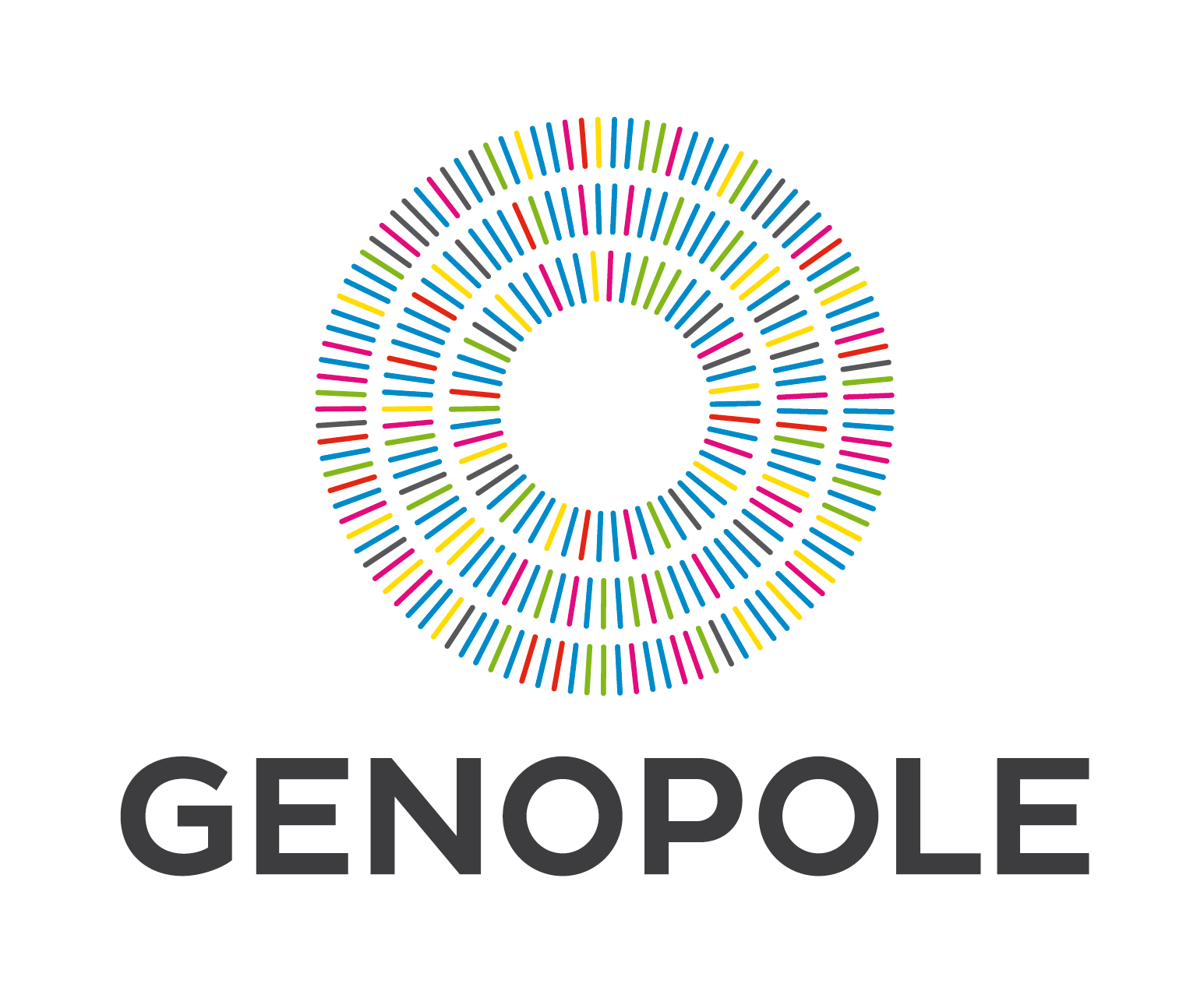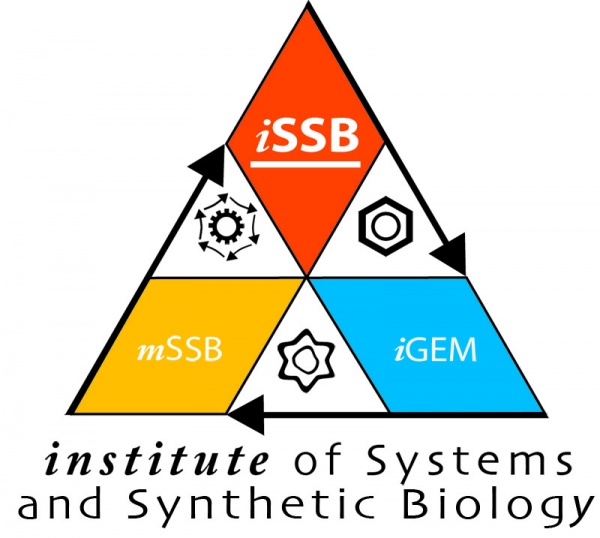Team:Evry/Model2
From 2013.igem.org
| (8 intermediate revisions not shown) | |||
| Line 1: | Line 1: | ||
| - | {{:Team:Evry/ | + | {{:Team:Evry/template_model}} |
| + | |||
<html> | <html> | ||
| - | <h1> | + | <div id="mainTextcontainer"> |
| + | |||
| + | <h1>Population scale</h1> | ||
<h2>Overview</h2> | <h2>Overview</h2> | ||
| Line 8: | Line 11: | ||
<img src="https://static.igem.org/mediawiki/2013/e/e2/Schemamodel2.jpg" alt="text to print if image not found" width=600px align="center"/> | <img src="https://static.igem.org/mediawiki/2013/e/e2/Schemamodel2.jpg" alt="text to print if image not found" width=600px align="center"/> | ||
| - | <p>This model is based on the | + | <p>This model is based on the bacterial scale. We consider the activity of each bacteria. The environment is the duodenum. The bacteria produces siderophores and Siderophores chelate iron. Iron arrive in the environment by pulse every second. This pulse is constant. Iron is reduce by body and bacteria absorption. According to the hypothesis, we haven't iron auto-regulation. And the variation of Iron uptake is proportional to the iron quantity.</p> |
<h2>Assumptions</h2> | <h2>Assumptions</h2> | ||
| Line 22: | Line 25: | ||
<h3>Bacteria</h3> | <h3>Bacteria</h3> | ||
| + | |||
<p>A bacteria is a producer of siderophores. | <p>A bacteria is a producer of siderophores. | ||
This production is naturally ruled by a repressor and overexpressed by an activator : | This production is naturally ruled by a repressor and overexpressed by an activator : | ||
| - | The repressor and the activator is ruled by thresholds. | + | <ul> |
| + | <li> The Activator: <img src="https://static.igem.org/mediawiki/2013/0/05/Formuleact.png" alt="text to print if image not found" width=150px align="center"/> | ||
| + | <li> The Repressor: <img src="https://static.igem.org/mediawiki/2013/5/50/Formulerep.png" alt="text to print if image not found" width=150px align="center"/> | ||
| + | </ul> | ||
| + | </p> | ||
| + | <p>The repressor and the activator is ruled by thresholds. | ||
For the repressor, if iron quantity is lower than the threshold, we are in starvation case. So we haven't repression. | For the repressor, if iron quantity is lower than the threshold, we are in starvation case. So we haven't repression. | ||
The production in this case is modeled by negative exponential. | The production in this case is modeled by negative exponential. | ||
| Line 39: | Line 48: | ||
<h3>Siderophore</h3> | <h3>Siderophore</h3> | ||
| + | |||
<p>In this approach, we consider that 1 mol of siderophore chelate 1 mol of iron. | <p>In this approach, we consider that 1 mol of siderophore chelate 1 mol of iron. | ||
| - | And a siderophore can only chelate one iron atom. | + | And a siderophore can only chelate one iron atom.</p> |
| + | <img src="https://static.igem.org/mediawiki/2013/3/32/Formulechela.png" alt="text to print if image not found" width=150px align="center"/> | ||
| + | <p> | ||
We simulate the matching probability by a uniform random between 0 and 1. | We simulate the matching probability by a uniform random between 0 and 1. | ||
If the random number is lower than the quotient between iron quantity in the environment and an optimal iron quantity for chelation, the siderophores can chelate iron. | If the random number is lower than the quotient between iron quantity in the environment and an optimal iron quantity for chelation, the siderophores can chelate iron. | ||
| Line 56: | Line 68: | ||
</div> | </div> | ||
| - | < | + | </div> |
| + | </div> | ||
</html> | </html> | ||
| + | |||
| + | {{:Team:Evry/foot}} | ||
Latest revision as of 10:44, 1 October 2013
Population scale
Overview

This model is based on the bacterial scale. We consider the activity of each bacteria. The environment is the duodenum. The bacteria produces siderophores and Siderophores chelate iron. Iron arrive in the environment by pulse every second. This pulse is constant. Iron is reduce by body and bacteria absorption. According to the hypothesis, we haven't iron auto-regulation. And the variation of Iron uptake is proportional to the iron quantity.
Assumptions
- This model lasts 40 second.That's the time required for the chyme to cross the duodenum.
- The bacterial quantity is constant because of the very short time scale.
- The bacterial natural absorption is insignificant compared to the chelation because the production of siderophores is overexpressed.
Model Description
Bacteria
A bacteria is a producer of siderophores. This production is naturally ruled by a repressor and overexpressed by an activator :
- The Activator:

- The Repressor:

The repressor and the activator is ruled by thresholds. For the repressor, if iron quantity is lower than the threshold, we are in starvation case. So we haven't repression. The production in this case is modeled by negative exponential. The activator have the same behaviour. if iron quantity is upper than the threshold the production of siderophores is activated. And this production is modeled by a positive exponential. The choice of exponential function is arbitrary. Because of the different behaviour of each bacteria in a population, we have added a gaussian noise to the threshold.
Siderophore
In this approach, we consider that 1 mol of siderophore chelate 1 mol of iron. And a siderophore can only chelate one iron atom.

We simulate the matching probability by a uniform random between 0 and 1. If the random number is lower than the quotient between iron quantity in the environment and an optimal iron quantity for chelation, the siderophores can chelate iron.
Results
Conclusion
References:
 "
"













